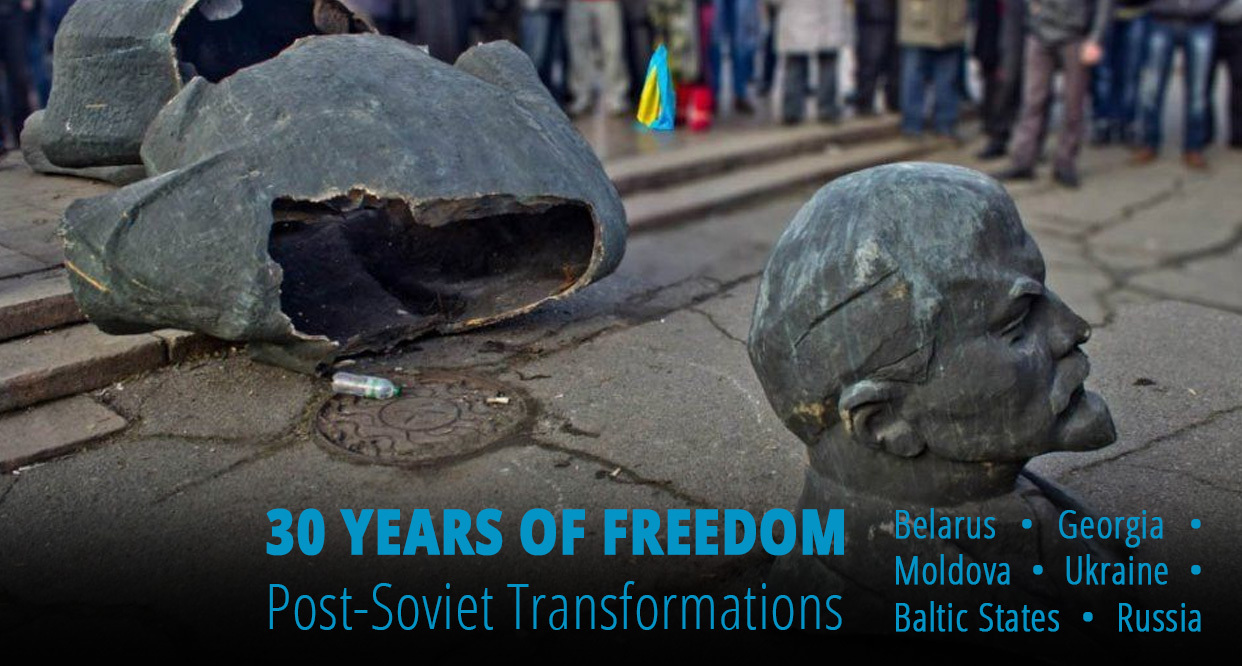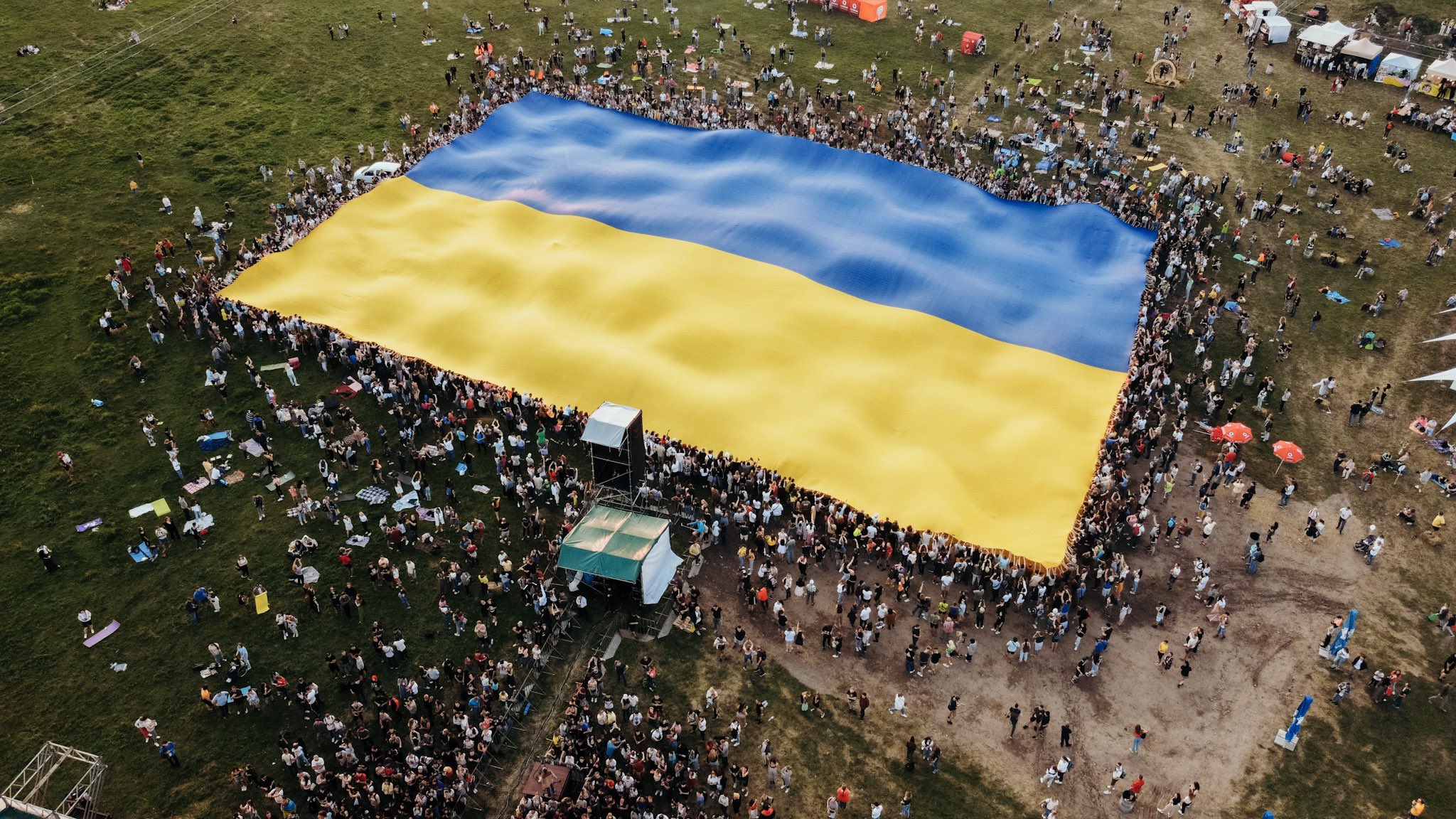We interviewed ten prominent individuals: writers, sociologists, political analysts, and historians from Belarus, Moldova, Georgia, Russia, Lithuania, and Ukraine. All four series are based on the comments of our speakers, including quotes from their published essays, beginning with the destruction of Communism:
- Part One. Demolishing monuments not enough to destroy post-Soviet nostalgia, but property rights help | 30 Years of Freedom, p.1
- Part Two. The post-Soviet oligarchies and how they shaped national state politics | 30 Years of Freedom, p.2
- Part Three. The end of the Soviet Man: How ex-USSR states forged their national identities, p.3
- Part Four. How to stop Russian wars in post-Soviet states? | 30 Years of Freedom, p.4
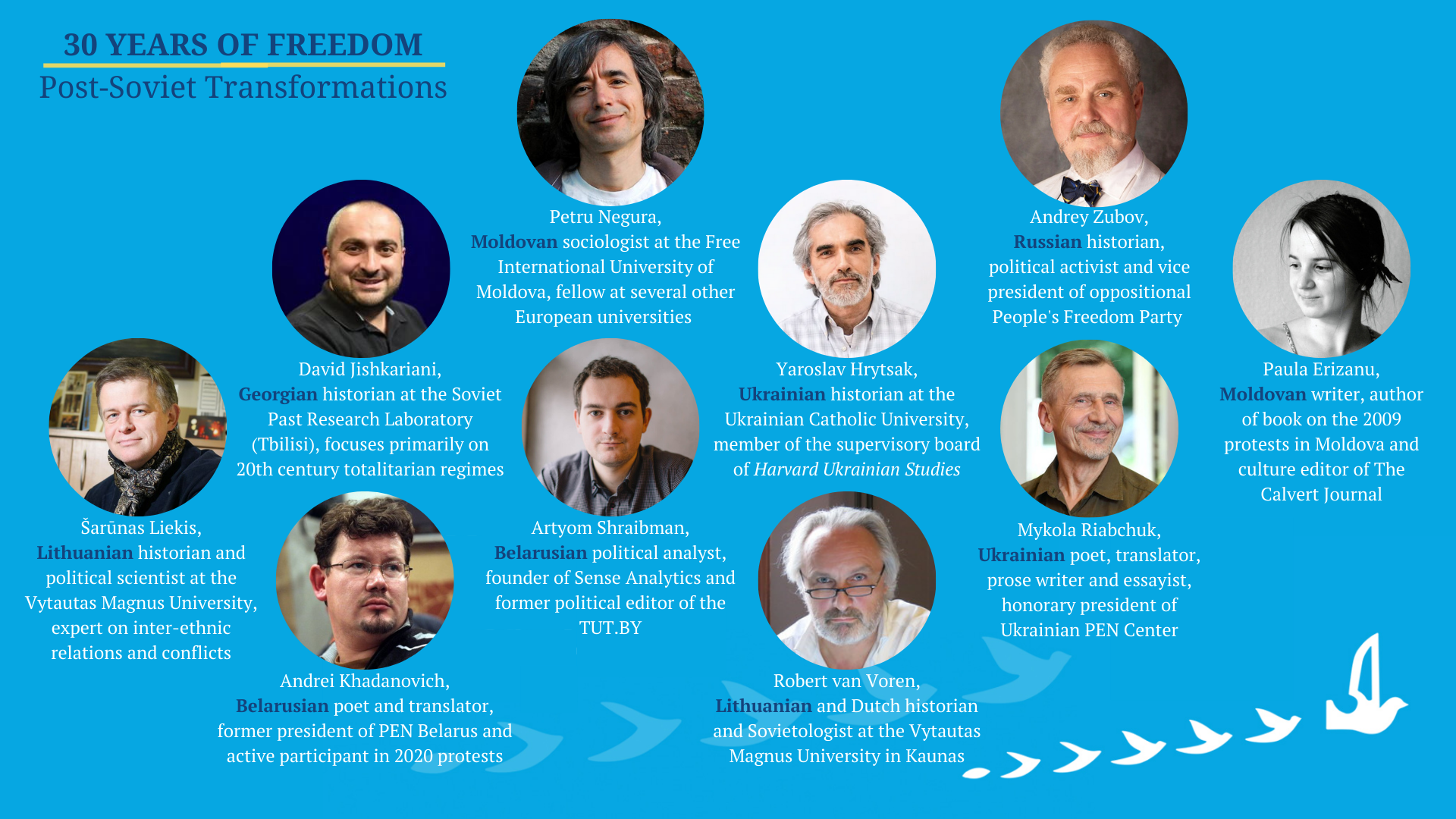
How strongly were Communists supported in post-Soviet countries after the fall of the USSR? Do the populations of Ukraine, Belarus, Russia, Moldova, Georgia, and the Baltics harbor Soviet nostalgia, or are they actively embarking on decommunization? The answers will differ greatly from country to country. Why is this the case?
Discussing decommunization in the former Soviet republics, Andrey Zubov, Russian historian and one of the leaders of the Russian oppositional democratic People’s Freedom Party (PARNAS), claims that decommunization has effectively been completed only in the Baltic states and only partially in Ukraine. The remaining post-Soviet states did not launch it systematically. Other commentators fit into this framework, but it should be noted that even without state decommunization in Russia or Belarus, a new generation with a new mindset has emerged everywhere.
Tension grows between this new generation and outdated authorities, who ground their authority on the post-Soviet nostalgia of mostly older generations.Restorative nostalgia is not real nostalgia but rose-colored glasses about people’s youth
Moldovan sociologist Petru Negura emphasizes that this nostalgia is what professor Svetlana Boym calls restorative nostalgia. It is not real nostalgia but rose-colored glasses about people’s youth and “how happy we were in the Soviet past because of the stability and predictability.”
Naturally, contemporary life differs a lot in the sometimes still untamed capitalism of the young states. That is why cultural decommunization, despite succeeding among the cultural elites, remains unimportant for the masses who place economic decommunization first. The latter is about restitution of property and property rights, and even helping and teaching people to protect those rights -- both aptly and actively.

Russia
Although now in the process of closing, Russian archives were accessible for 25 years. During that quarter-century, publishing a huge number of books, including scientific studies, was possible; for example, repressions of the KGB and national policy regarding Ukraine. All this information became public and will remain vital, permanently.
Zubov’s second point; namely, that the attitude towards the external world has changed, is major. Many people have been in the West, and they know now that all the negative propaganda by the Soviets was a lie. Of course, he points out, the Western world has its deficiencies, as does any society, but it is far superior to the Soviet and post-Soviet world.
At the top of the list of systemic decommunization is the restoration of property rights that were violated by the Communist regime. What was robbed by the Communists returns to ancestors of those who were robbed. This main principle is formulated in the 10.96 Declaration of PACE, in 1996. Nowhere, except in the Baltic states, was restitution of property conducted. This injustice erodes the very basis of democracy, even in those countries, such as Moldova or Ukraine, where politicians and civil society have sincerely tried to build it.Nowhere, except in the Baltic states, was restitution of property conducted. This injustice erodes the very basis of democracy.
The next step of systemic decommunization is, clearly, lustration -- not only of the Soviet KGB, but of contemporary tyrannic structures such as the FSB or the presidential administration. These institutions have been highly instrumental in turning Russia and Belarus into authoritarian states.
Regarding historical memory, Ukraine does well, but Russia and Belarus, unfortunately, do not. Statues of Communist leaders still stand on city squares; streets are still named for these leaders; cities are still named for them; and Lenin still lies in his mausoleum. These elements represent a certain -- secret -- power of the regime. Losing this power, the regime would face rapid ruin, as did the former KGB.

Ben: Why is the popularity of Stalin growing so quickly in Russia? Is it only Putin’s propaganda, or something else?

Zubov: It is something else. Systemic decommunization is more than just talking about Stalin’s badness. There were many such talks in Russia, and memorial cemeteries of victims of political repressions were established. Tens of volumes were published. Everyone who wants to read and know, can read and know. Yes, there are some attempts to hide events, like the recent arrest of Yuri Dmitriev who discovered Sandarmokh [a forest mass grave where 9,000 victims of Stalin's Great Terror were executed in 1937-1938 -ed.] But this is after many years of writing on this subject. And the very Sandarmokh for which Dmitirev was imprisoned is well known -- this is in our book, The History of Russia: 20th Century. It is a fact that can’t be hidden.
The positive perception of Stalin is deeper than just ignorance. The issue is that people live not by knowledge, but by personal experience. This is a well-known psychological fact. The world of experience, for the majority of people, is the world of material wellness.Stalin kept order, there were no rich people, everyone was equal ... This is a myth, but the grounds for it is that the stratification of society has become very apparent.
If you can be a confident economic actor in a certain political system, then you feel loyalty to this system, like in the Czech Republic or Poland. However, if you feel yourself to be marginal and a beggar, but you know that you aren’t a fool and should not be in this position, then you realize that this is a system preventing you from living a normal life. Inevitably, one repudiates the system. This happened in Russia. There was no restitution of property and ordinary people received nothing, unlike intellectuals who received freedom. Political freedom has little use for the majority of people, while economic wellness -- such as that attained by the Czechs, Poles, Baltics and East Germans -- does.
That is why they say it was better during Stalin. Stalin kept order, there were no oligarchs and rich people, everyone was equal and even Stalin himself wore an old jacket. This is a myth, but the grounds for this myth is that the stratification of society has become very apparent. It was hidden during Stalin.
Putin elites which appropriated all Russian wealth and, likely, became the richest people in the world, are the ones who fear that any democratic regime will take this away from them. Current elites don’t like Stalin. They don’t want Putin to become Stalin, but they use the image of Stalin so that the authoritarian regime can preserve its wealth.
But common people do want a replica of Stalin so that everybody is equal. And Putin plays Stalin for the people and remains a dictator who, in reality, preserves the property of elites. That is why he is holding on so strongly to these two positions.
Ben: How quickly can the institution of property be restored in Russia -- in the full meaning of the word -- considering that the population experienced this freedom for only 30-50 years during the era of late Russian Empire? You have emphasized this point in a video lecture.
Consequently, the custom of generational ownership in Russia died. This largely explains why people do not value property rights the same way as in the West and, moreover, why they predominantly support dictatorship. Their hope is that the (supposedly) benign dictator will provide social benefits, thus lessening their own burden of personal responsibility.
Zubov: Yes, this is a big problem, not only in Russia but also in that part of Ukraine which was part of the Russian Empire, and, to some extent, in other states of Central Europe. A period of adaptation to a system of private property is key. This period is necessary when people do not have the opportunity to sell their property. People might receive property during a campaign of restitution, but they are tempted to sell it immediately and, unfortunately, squander that money. They don’t understand the long-term potential for their property. The transition from indentured labor to private ownership is a long and complicated process.
You know, Alexander II granted peasants freedom and gave them land, unlike in Austria or Prussia where they were freed but without property. In 1861, the emperor ordered so-called “intermediaries” to help peasants with their new land rights. These intermediaries were nobles who were dedicated to the idea of liberation for the peasants and to the notion of freedom.
Several thousands went, even to faraway regions of the Russian Empire, to perform this service. They received compensation for their efforts from rulemakers of the day and, indeed, helped villagers to adapt to ownership. This is a little-known fact, but a very interesting page in Russian history.
Something similar must be done now. You can’t just abandon inexperienced people to fend with the complications of private property. We should remember the main goal. Only that society which supports private ownership of property by many can build democracy. The society where property is concentrated in the hands of a few builds either oligarchy or dictatorship. These are the laws of political science.
Moldova
I think, partially, Communists got popular because of Soviet nostalgia and the rise of social instability, explains Paula Erizanu, Moldovan writer who is renowned for her book about the 2009 revolution. I guess a lot of people who voted for Communists in 2001 associated this party with a more stable past.
Obviously there were all those terrible things during Soviet times like censorship and use of artists for propaganda. But at the same time there was good state infrastructure, including good state infrastructure for artists. For instance, the mosaic bus stops (also found in Ukraine) were all made by local artists. This was a way to help them make a living.
In particular, socio-cultural infrastructure in the countryside was much better during Soviet times, and this is what fuels post-Soviet nostalgia in contemporary rural areas. We had these culture houses -- every village had a book shop.In the last 30 years, unfortunately, we haven’t had big progress in terms of the national cultural infrastructure in the countryside.
Prior to that we also had traditions that bound people together and created forms of solidarity. Now with the economic collapse of the villages, people are migrating to urban areas or abroad. And the kind of communal life in the countryside is now limited to the church or the local bar. Only television or the Internet connects people with the outside world and there isn’t much alternative to what appears there.
It’s important to have something other than politics to share with each other and that gives meaning to our life. I would say in the last 30 years, unfortunately, we haven’t had big progress in terms of the national cultural infrastructure and how to maintain a busy cultural life in the countryside. What has changed is life in the capital city. It feels like the gap between the capital city and the countryside has increased.
We have this kind of back-and-forth between pro-reformist or, conventionally speaking, pro-Western parties, and others which are rather conservative.Because of a strong civil society which rallied for freedom of speech and other liberal values, Communists didn’t have full power to control society
Yet in our post-Soviet context, this position manifests more like pro-Russian, pro-Soviet parties. We had quite an exceptional case with an obviously Communist party coming to power in 2001. It was a government which concluded various agreements with NATO and the European Union, and which preserved a more-or-less free media.
Although such a Communist party was in power, at the same time it was not a real autocratic power, as in Belarus or in certain post-Soviet Asian countries. However, because of a strong civil society which advocated for anti-Communism, and held an anti-Soviet position and, at the same time, rallied for freedom of speech and other liberal values, Communists didn’t have full power to control society.
For instance, they weren’t powerful enough to impose communist-fashioned practices on Moldova in 2003. The academic community and students, as well as civil society, held riots to deter them.

I would like to be a little more nuanced about the Communists and anti-Communists, because we had Communists and now we have Socialists, but they are not really Socialists. We don’t have conventional right-wing and left-wing parties.
A little like in Ukraine, we have right-wing parties that are pro-European and, in our case, sometimes pro-Romania, yet at the same time we have Socialist parties and Communist parties who are pro-Russian. But Putin is not a Socialist. Putin is the most brutal neoliberal in this entire regime sphere. So, I would kindly disagree that our Socialists are Socialists in their essence. Moreover, many of the politicians in these Socialist parties are wealthy people, as in Georgia or Ukraine.
Ben: Does this mean that so-called Communists in 2001 simply exploited elements of post-Soviet nostalgia and populist policies to win elections?
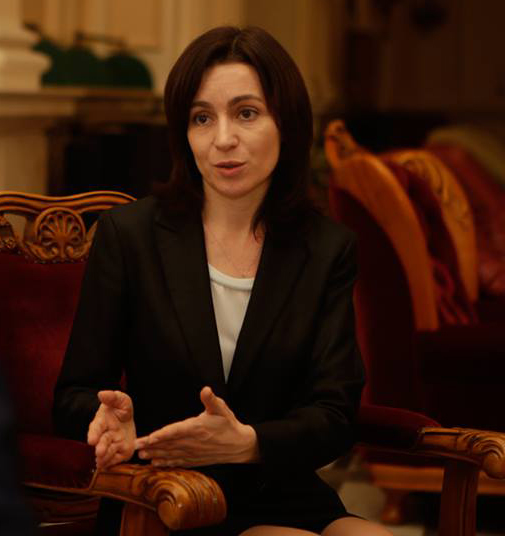
Negura: In 2001, people were quite disappointed by the democratic parties, but not because of democracy, rather because of the economic crisis. We had a profound economic crisis in 1998 and 1999. The real default occurred in Russia, but because the economy of Moldova was dependent on economic relations with Russia, it hit us hard. So in 2001, the outcome of the election was something like a protest vote. It was not real post-Soviet nostalgia but what Svetlana Boym called restorative nostalgia.
It was not a melancholic nostalgia but reflected something about youth and how happy we were in the Soviet past because of the stability and predictability. In 2001, 70% of Moldovans, similar to Ukrainians, and perhaps even more so, Russians -- were pushed to the absolute poverty line. Moreover, 50% of the population had fallen below the extreme poverty line. They lost everything. In such conditions, they voted for those who declared themselves as Soviet.
But then so-called Communists played political realists. They didn’t disagree with Europe or with NATO, but they did disagree with the Russian official Dmitriy Kozak, who advocated for a federalization format for integrating Moldova and Transnistria.What happened in Moldova, like in Ukraine and other countries, is what Adam Mikhnik called a velvet “restoration.” Nationalists and dissidents failed to keep power in the 1990s.
What happened in Moldova, like in Ukraine and other countries, is what Adam Mikhnik called a velvet “restoration.” There was a velvet “revolution,” but then we had a velvet restoration, when pro-Soviet forces returned to power.
Nationalists and dissidents failed to keep power in the early 1990s. Partially, because they were too weak -- minority players.
What was successful during the 1990s is that forbidden topics came forward; such as everything related to nationalism and the nation, not to mention Bessarabians belonging to Romania in the interwar period. All this was revealed. Such topics had been widely discussed from 1988 and throughout the 1990s, and everyone was reading forbidden books about nationalism.
The same was true about modernist authors. But after 2009, socio-economic reforms became the main topic and new grassroot parties were created. 2021 is the first year that the grassroot -- not oligarchic -- party of Action and Solidarity has come to power in Moldova.
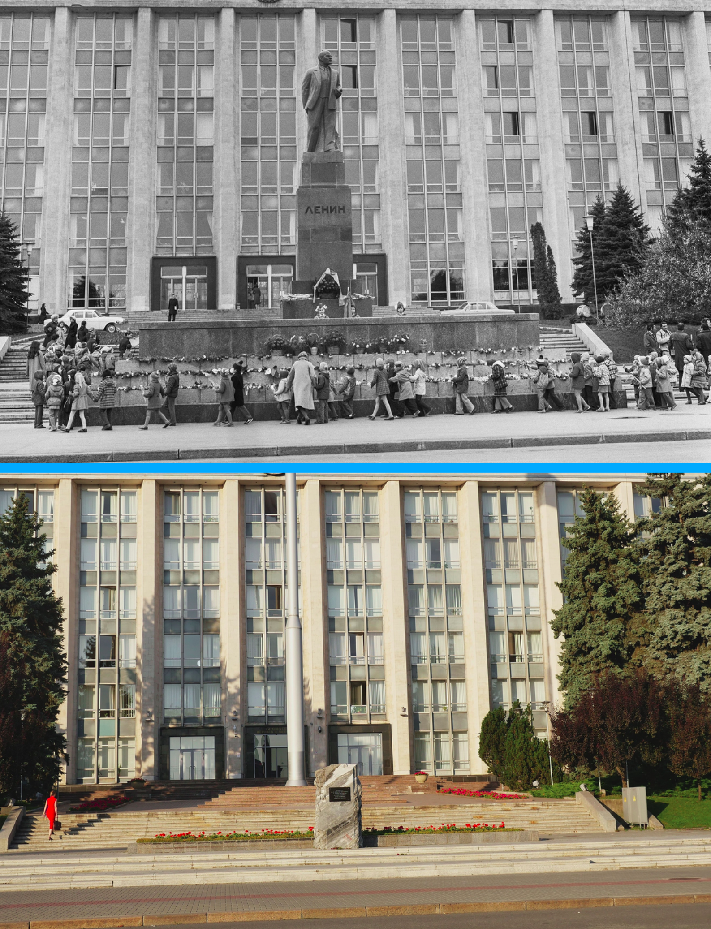
Belarus
Fortunately, the last 25 years weathered nostalgia for Soviet “cheap sausages” – an archetypal image of Soviet poor but stable life. Although there was no state policy of decommunization, cultural decommunization in Belarus today comes in the form of free “street universities.” These are open lectures or seminars conducted informally, often in abandoned buildings or secluded yards, by academics and experts who are otherwise banned from their official roles. This form of education became popular after January 2021 as a regular and persistent continuation of the 2020 protests against Lukashenka’s regime.
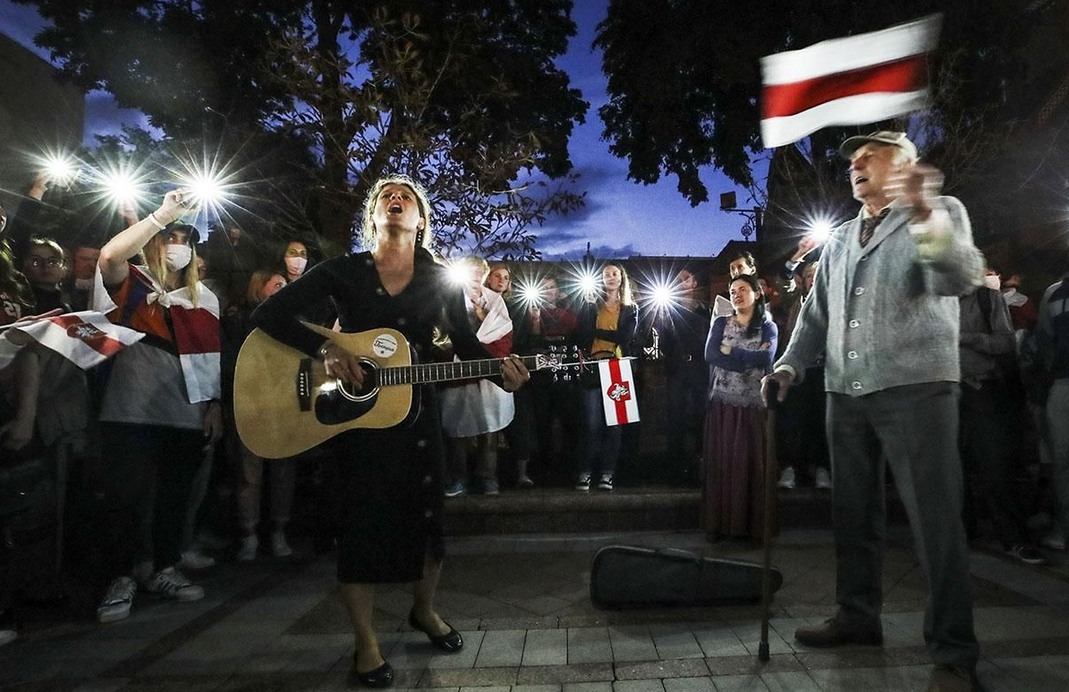
A paradox took place in Belarus. The collapse of the Soviet Empire and the relative weakness of former president Boris Yeltsin led to Belarus being released too easily. Once all other republics declared independence, Belarus had nowhere to go. Fortunately, our pro-European liberal forces managed to declare independence, but for many people it was not considered valuable.
Due to economic instability, many people thought according to this paradigm: you can choose either culture or a prosperous life. Some propagandists were asking the question -- what do you want, the Belarusian language or sausages? And for some reason, it seemed to people that the use of the Belarusian language would reduce the number of sausages in stores.
In Belarus in 1994, the same thing happened as in post-revolutionary France from 1848 to 1851, when Napoleon III came to power. He was little-known and his only trump card was being a nephew of Napoleon Bonaparte. Lukashenka came to power because people simply did not want any of the other politicians, be it democratic or of the former Soviet establishment. I think Ukraine’s Zelenskyy is also a classic protest vote.
Symbolic decommunization didn’t happen in Belarus by the state. We still have nostalgia for various Russian and Soviet customs.
Boys in uniform still go out and continue this narrative, like other narratives of the Russian Empire. Children are still taught the Napoleonic War at school as having been their own war against others. They are taught the Russian Empire is their own.We still have young guys studying in the military, who are called Suvorovtsi (Comrades of Russian General Suvorov). We live by the myths of neighboring countries’ history.
But the distinct feature of contemporary Belarus is that contrary to outdated state policies, cultural decommunization now happens in the form of free “street universities” in city quarters where groups gather. People meet on a regular basis, invite lecturers, artists and others to speak, and thus help activists.
Many intellectuals participate in this kind of independent, unfettered learning. Active street protests are not possible at this time, and so we have chosen this path of lengthy, day-to-day work which transforms society from within, and sooner or later will bear fruit. We, Belarusians, in comparison to Ukrainians, are a bit different. We exaggerate a famous proverb to measure seven times and cut one time. We are measuring 77 times now, it may not be that visible to the world.Contrary to outdated state policies, cultural decommunization now happens in the form of free “street universities” in city quarters where groups gather
If you look at the polls throughout the 1990s, Belarusians by majority wanted to return to the USSR more than they supported independence.
Only in the early 2000s, the number of pro-independence supporters outweighed the number of people who are nostalgic about the Soviet Union. So, some sort of revanche of Soviet forces was imminent in Belarus in the 1990s. Lukashenka was exactly the type of person who capitalized on this trend; who was the most charismatic of anti-liberal, anti-democratic politicians.
He masterfully exploited the topic of corruption both among democrats and the former Soviet nomenclatura. It was his main election manifesto.Throughout the 1990s, Belarusians by majority wanted to return to the USSR more than they supported independence. Only in the early 2000s, the number of pro-independence supporters outweighed
I think it was the general post-Soviet trend where populations of many countries that had just recently acquired their independence were quite nostalgic about the Soviet Union -- given the losses and troubles of the 1990s. That is why in some sense there was a renaissance of Soviet or pro-Soviet or authoritarian forces.
This was the case, to some degree, in Poland where Alexander Kwasniewski won the presidential election in 1995. It was the case in Russia where Putin came to power in 1999. He was basically a KGB agent, a KGB colonel. To some degree it was the case in Ukraine when Leonid Kuchma came to power. So, Belarus was part of that trend, and Belarus was at the forefront of this trend.
The democratic forces were not the main challengers to Lukashenka. Rather the establishment of these years, such as Viacheslav Kabich, former prime minister, who was again the representative of this old Communist nomenclatura.
Lukashenka was actually the opposition candidate, he was challenging the establishment from another, even more populist perspective. Zianon Pazniak was the patriotic nationalist figure, similar to Viktor Yushchenko, ideologically, or Petro Poroshenko -- the latter two, former presidents of Ukraine, were actually elected. Pazniak got 12% in 1994, which I think is currently the maximum support that nationalist or conservative forces can gain in Belarus, given all the polls we have had.

Speaking in terms of political culture and the new generation that has grown up over these 30 years, people became more pro-European, more pro-democratic. Independence has become the value, which was not the case 20 years ago when socio-economic issues were the priority.
There has been a very gradual, very steady, very clear trend towards less inclination for the strong hand -- for the administrative authoritarian methods of governance in Belarus, both in terms of economy and politics -- and this is the trend that, at least, public opinion polls have observed since 2011. If you poll society today, you virtually will not find a constituency that supports merging with Russia for example, unlike the 1990s.
Georgia
Ben: I found it an interesting fact that in 1905 the Marxist Socialist Democratic party became the dominant political movement in Georgia. How popular were Communists in Georgia at that time and later, compared to other countries?
Jishkariani: We have to underline that at the beginning of 1905 there were not Communists but social-democratic peasant and workers movements of the Russian Empire. That’s very important, because Communists came later. In the beginning of the 20th century, not only socialist parties existed on the territory of Georgia. There were also nationalist parties, some federalists, and other parties. It was really multi-system, even though Socialists indeed were the most represented.
One of the reasons why social democrats had support is due to industrial projects that were implemented by the Russian Empire in the 19th century. The western part of Georgia had a large mining industry, while the eastern part had an even bigger industry in railway and railway manufacturers.
The first Georgian Democratic Republic of 1917 was totally different from the Bolshevik party of that time. There was a major conflict between them [Georgian social-democrats with Bolsheviks -ed.]. Distinguishing between them is important. Also, the first republic didn’t only consist of social democrats but included other political parties, such as federalists and national democrats. It was a multiparty system with social democrats holding a majority.

The historical role and image of Stalin in Georgia
I also want to underline that the importance of Stalin as a "leader from birth" was manufactured in the Soviet historiography of 1936, when the persona of Stalin as an idol was launched.In the 1950s, Georgians rebelled against the Soviet policy to criticize Joseph Stalin. This is a unique feature
That’s why Georgia has an interesting history of opposing the Soviet Union. In the 1920s and 1930s there were some protests in the country -- in 1924, a huge rebellion broke out against the Bolsheviks. During the Second World War there were some further rebellions.
But along with these rebellions, that were typical for many Soviet republics in the 1950s, Georgians rebelled against the Soviet policy to criticize Stalin. This is a unique feature. Georgians tried to protect Stalin’s monuments and Stalin’s cult of personality in Tbilisi.

Furthermore, individual protests against Nikita Khrushchev took place, because he dared to criticize Stalin. There were also individual protests among the younger generations in 1965, and many were arrested in cities all around the country. Their crime was to say that things were changing and that Russians were not respecting Georgian culture anymore.
They argued that Russification would begin, because Stalin was no longer in the Kremlin. For example, in 1956 a mass protest took place in Tbilisi to protect the city’s “Uncle Joseph” monument. The protesters demanded a letter be sent to the Chinese Communist Party asking for military support to cut all contacts with Russia. Their intentions were naive and most of them ended up in prison with sentences of 16-18 years.
Generalizing, one may say that independence from Russia -- cultural and political -- was more important than the anti-Soviet movement in Georgia. However, we did have some protests by individuals who claimed that Georgia should be independent of Stalin and the USSR altogether. All these movements were different -- there was no singular approach.
Contemporary decommunization
Renaming streets and statues denoting communist ideology began in the 1990s immediately after declaring independence.They removed Stalin’s monuments in his birthplace of Gori city, but this didn’t mean that the inhabitants of Gori no longer loved Stalin
Another program of decommunization came about under Mikhael Saakashvili, but was not successful. One reason was the lack of clarity as to what was a Soviet symbol and what was not. Many streets were named after Georgian writers who were born and lived in the Soviet Union -- we had to decide whether to remove their street names or not.
Saakashvili wanted to turn this policy into the Europeanization of the Georgian nation, but it failed. Some older people were re-erecting Stalin monuments because of the lack of discussion about the issue. Saakashvili ended up trying to enact a policy of decommunization, just as the Bolsheviks had struggled with their policy of undoing the imperial legacy.

Saakashvili wanted to change everything. One day, I think it was in 2010, they removed Stalin’s monuments in his birthplace of Gori city, but this didn’t mean that the inhabitants of Gori no longer loved Stalin. When there is a distinct narrative of an idol that was formed, not in two or three years, but in 60 years, this narrative is very strong and takes root in the population, not only in textbooks.Real grassroots movements, and a new generation of historians try to rethink the past without such ideas of grandeur
Therefore, you do not need revolutionary changes -- rather work from a long-term perspective. Now we have real grassroots movements, and a new generation of historians and other social scientists who try to rethink the past without such ideas of grandeur. I think today this approach is very important because this is the kind of change that will live on.
Lithuania, Latvia, Estonia
The main reason behind rapid EU and NATO membership
I think the reason why Baltic states so quickly conducted decommunization and joined the EU and NATO is quite simple. First of all, they acknowledged they were occupied by the Soviet Union and in that regard they were ahead of many other Soviet republics in trying to reinstate independence.The Baltics acknowledged they were occupied by the Soviet Union and in that regard they were ahead of many other Soviet republics
It was not establishing independence but reinstating independence. After 1945, although becoming part of the USSR, people still considered it an occupation. Underscoring this was America's advocacy promoting that being part of the USSR did not mean occupation was accepted by the international community. Naturally, after 1991, Baltic states were at the forefront in trying to find guarantees against the reoccupation by Russia.
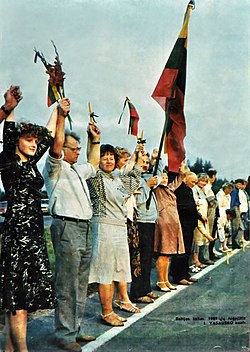
However, even after joining NATO and the EU, the fear that the linkage might still break is always there. When protests erupted in Ukraine, many Lithuanians, as well as people in the other Baltic countries, were afraid that we would be next to feel the Russian yolk return. And of course, as we see, Russia is quietly engaged in this effort -- it is their favorite job to create problems in a country and see how far it can go.
Another reason why Lithuania was ahead in the independence process was that the state was, in fact, a democratic and independent state between the two world wars. It was possible to conduct property restitution. At the time, property went right back to the people and families that had owned it prior to the Soviet occupation.Property went right back to the people and families that had owned it prior to the Soviet occupation
Being occupied by the Soviet Union for 50 or 70 years is quite different. Especially when taking into account the Holodomor [1932-33 artificial famine deliberately imposed by Stalin and killing 3.6 million people in Ukraine -ed.], when those peasants who did own their land were deliberately exterminated.
In the 1990s, when so many prior generations had suffered either from expropriation or death, returning land was almost an impossibility. This did not happen in Lithuania. Although 10% of the population was exiled to Siberia, many actually survived and managed to return to their homeland. Then, after Lithuanian independence, they got their property back.
Decommunization
Changing street names and similar accomplishments happened rapidly in Lithuania -- and quite successfully. In Vilnius, you have the Gediminas Prospect, the city’s main boulevard, which has been renamed many times, depending on the regime in power: Mitskevich Prospect under the Poles; Hitler Prospect under the Nazis; and under the USSR, Stalin Prospect then Lenin Prospect. Today it has returned to its rightful name, Gediminas Prospect.
The bigger problem was with streets which were named after people who were Lithuanian partisans and treated as heroes. Today, some of them are suspected of involvement in the Holocaust. The full account of these contentious events remains an ongoing discussion.
Regarding statues of Lenin, Stalin, and memorials to the Soviet era, they were treated as relics of history. They were relocated to a public park outside Vilnius.Memorials to the Soviet era were treated as relics of history and relocated to a public park outside Vilnius
The area is constructed like a concentration camp, with watch towers, barbed-wire fences, and so on. The significance is that now these Communist leaders are themselves prisoners in a concentration camp. I think this is an appropriate treatment, because on the one hand you take them out of the public domain but at the same time you don’t destroy them. You keep them because this is a living testimony for children to learn about the traumas of this era.


There are more prickly issues, such as the Green bridge in Vilnius where four Soviet statues stood -- the kind that were typical of regime-dictated social realism art: one for peasants, one for soldiers, one for workers, and one for “champion housewives.” Of course they were Soviet, but they were also part of the bridge architecture.
Moreover, they were not replicas of Hitler or Stalin -- the statues were a statement on a period in the past. However, their presence spawned a major national controversy as to whether to take them down or not. Suddenly in August, when everybody was on holiday, the statues were removed on the pretense of much-needed restoration, then, of course, they never reappeared. The irony is that this action mimicked the modus operandi of the Soviets, where things would disappear under stealth of night, then the next morning no mention was made.
I must also say that due to the post-Soviet economic crisis and uncertainty on reforms, one million Lithuanians emigrated from the country. This was one-third of the population, consisting mostly of young, educated and multilingual people who could have contributed significantly to Lithuanian democratic development. Those who could not leave or were older remained in the country, resulting in a period of recommunization. But now that the income level in the country has reached a level where one can have a good life, things have changed. Last year was the first year that more people immigrated into the country than emigrated out.
No lustration
Lithuania was actually fairly relaxed with respect to lustration. It’s a bit like former president Leonid Kravchuk in Ukraine. In Lithuania, the last secretary of the Communist party, Algirdas Brazauskas, became president as a social democrat. I think for many people the notion of whether you were a Communist or a Lithuanian nationalist in the past was relatively unimportant, as long as Lithuania was now your first allegiance. Lustration was also a problem because much of the Soviet archive was acquired by Moscow. So, Lithuanian authorities were quite limited in the measures they could take.
Many Lithuanians who were Communists were actually self-veiled Lithuanian patriots who came out after 1991. And even former president Dalia Gribauskaite had a questionable past, as well as links to the KGB. But people closed their eyes to this because she was a very good president and put Lithuania on the map. She was also clever in how she opposed Putin, knowing well who she was dealing with.
Ukraine
But this success is only in part. After destroying communist ideology and recognizing communist crimes, Ukrainians not yet fully recovered from colonialism and notions of inferiority. Partially, this is because Ukraine suffered the most during the Holodomor and Second World War, unlike the Baltic states or Georgia.
It takes time for people to move beyond extreme trauma and restore pride in themselves and their potential as a nation. The optimistic view of Ukrainian historian Yaroslav Hrytsak and essayist Mykola Riabchuk is about the new generation that has grown up in Independent Ukraine, and is reviving traditions of independence and personal freedoms.
If we talk about decommunization of historical memory, the biggest difference between Ukrainians and Russians is their attitude towards Stalin, Hrytsak says. If in Russia, Stalin is a hero who raised Russia from its knees and won the war, in Ukraine he is a villain. He is the man responsible for the Holodomor and other terrible repressions. The biggest shift that has occurred in historical memory in Ukraine is the manner in which the Holodomor has been validated here. All regions now share the view that the Holodomor was genocide. That says something.
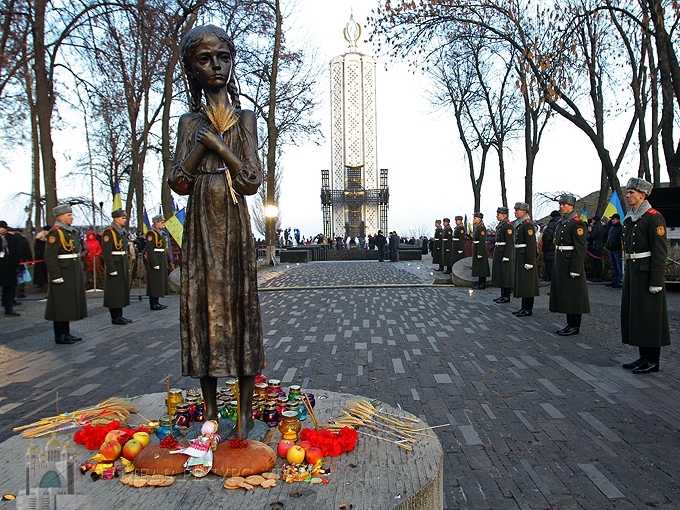
Today, we live in a post-genocide transition period where corruption is one of the consequences. Nations that have experienced extreme violence are particularly prone to corruption.It takes more time to recover from psychological trauma, even after symbols and popular narratives have been decommunized
Why? Because for them corruption is the only way of survival. Moreover, violence creates an apathetic society because passivity is the most certain way to survive. It takes more time to recover from this psychological trauma, even after symbols and popular narratives have been decommunized.
What’s important is that Ukraine now has a whole generation that grew up during Independence. I really like this new generation -- this can seem like a trite compliment, but it is a true compliment. I believe that the emergence of a new innovative generation is one of the greatest achievements of Ukrainian Independence. This is serious, because it was impossible even 10 years ago. I haved lived a little and I can see. This is a new quality.
Ukrainians under 30 unified in their support for Ukraine and the West unlike older generations
The problem of this young generation is that it has certain traits that prevent it from forming political projects. In particular, the fact that the generation under 30 is a generation of horizontal connections. Vertical hierarchy is alien to them. That is why political undertakings will always be difficult for them, because the political hierarchy must be a hierarchy.
One may claim that decommunization is finished in Ukraine, but decolonization is not yet. Unfortunately, the term nationalism has had rather negative connotations in Ukraine because of the widespread Soviet tradition of demonizing nationalism; namely Ukrainian nationalism; namely bourgeois nationalism. This has always been, in fact, a criminal accusation.
But it changed after the 2014 Revolution of Dignity and the Russian invasion in Crimea and Donbas. Today in Ukraine, perhaps not overwhelmingly but in the majority, people have a positive attitude to nationalism, seeing it in a positive sense, as an ideology that encourages dedication to their country. Such nationalism must be liberal. If it is not liberal, it is no longer nationalism, rather a kind of chauvinism. Ukraine is on the way towards the republican understanding of nationalism; as it were, a joint stock company where people own an equal number of shares in the state. The republic is a common cause.

Ukraine’s own Velvet Revolution during the 1990s, contrary to other Central European countries, is yet unfinished. The Soviet legacy has persisted, both psychologically and institutionally. This is why the 2004 and 2014 revolutions took place in Ukraine — to unleash further evolutionary change. The absence of republican solidarity and a weak self-association with Ukrainian statehood are reasons why Ukraine still needs time to finish its revolution. Such shortcomings are the consequence of the long colonial state of Ukraine, both under the Russian Empire and subsequent Soviet Empire.
[In the 1990s,] no Ukrainian peer of Václav Havel or Lech Wałęsa had any chance to win in a heavily Sovietized society; neither Polish nor Czech experiences under foreign rule could match Ukraine’s 300-year ordeal in the Russian Empire and the additional 70 years in the Soviet Union.Independence is a story of great compulsion, as exercised by a minority that has managed to influence the majority-driven post-Soviet politics
Ukraine inherited a colonial, opportunistic elite that had been interested primarily in power and property but certainly not in any reforms that would have undermined their dominance. And it inherited a population at large that was neither able nor willing to replace that elite, let alone make it work. It came as no surprise that the country throughout the 1990s resembled a failed state: hyperinflation exploded, birth rates plummeted while emigration skyrocketed, and popular support for national Independence plummeted -- at some points -- to barely more than fifty per cent.
But Independence is also a story of great compulsion, as exercised by a quarter of the population, a minority that has managed to influence the majority-driven post-Soviet politics. It was this committed minority that prevented Ukraine’s backsliding into dictatorship – as happened in Russia and Belarus. Admittedly, this drive at some points required revolutionary upheavals, ultimately costing thousands of human lives and a tenth of Ukraine’s territories occupied by Russia.
This one-quarter minority has, in the past decades, grown up and matured, making up more than half of the population today and leaving Moscow no chance for Ukraine’s re-Sovietization, or an autocratic return. They are learning by doing, and I believe that at some point they will learn to make viable coalitions, create responsible governments, and translate worthy political programs into reality.

